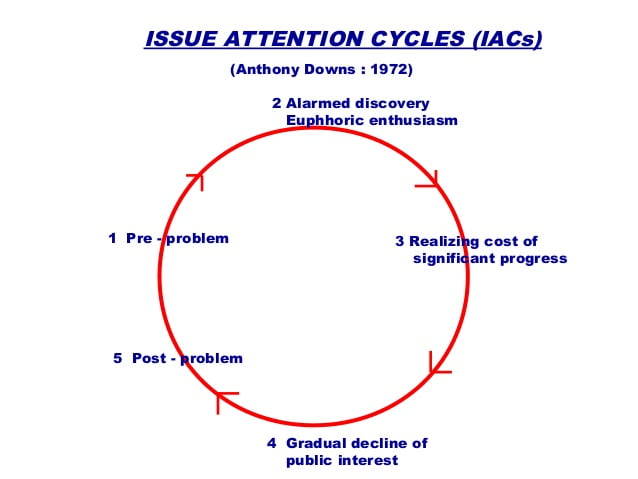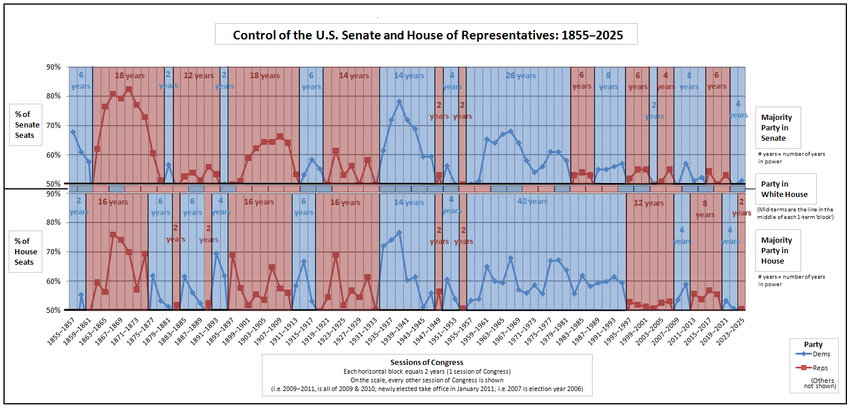Most relevant: A case for optimism.
In chapter 2 of the Thurber book, I think it would be interesting for Binder to consider the increasing time constraints on elected officials, the increasing complexity of issues facing Congress, and Congressional productivity in terms of an absolute metric. She primarily examines the number of failed measures relative to the total number of issues on the legislative agenda.
I haven't taken the time to calculate the actual values, but from eye-balling
figure 2.1b it appears that the number of legislative successes in salient issues decreased in the 1990s and then increased in the 2000s, peaking in the 110th Congress. Given the increasing complexity of issues, the increasing number of salient issues, and the increasing responsibilities of elected officials, I find this result somewhat hopeful.
Figure 2.1a shows a modest decline in the overall number of successful pieces of legislation but this may be less meaningful because they are not all "salient" issues and because the increasing complexity of the issues facing Congress would generally lead to a decline in total legislative productivity.
Further- and this may be a bit to abstract- it might be worth considering that there may be a "maximum" productivity for Congress. Due to the time constrains imposed on legislators and the intentionally protracted legislative process, there may be a maximum number of high-quality, well researched, intelligently designed, and well written legislation that a congress can or
should pass. Any additional measure over this theoretical maximum would have to either be of lower quality or be passed in some uniquely productive time period.
Just some thoughts.
Still relevant: Fun, or maybe not so fun, fact about the Filibuster.
Given the platitudes about the Senate being the chamber of "infinite debate," it surprised me to learn that the original Senate had a motion "for the previous question", essentially a cloture motion requiring only a simple majority of Senators to end debate. In 1806, it was removed from the Senate rules because it was so infrequently used. The authors of the paper titled the section, "The inadvertent Creation of the Opportunity to Filibuster".
http://www.law.harvard.edu/students/orgs/jlpp/Gold_Gupta_JLPP_article.pdf pages: 213-216
Tangentially relevant: It's not quite Congress, but it's local politics?
Some testimony that I saw from the L.A. City Council, not quite expert testimony, not celebrity testimony either... https://www.youtube.com/watch?v=tFUKsthR-Ts.













